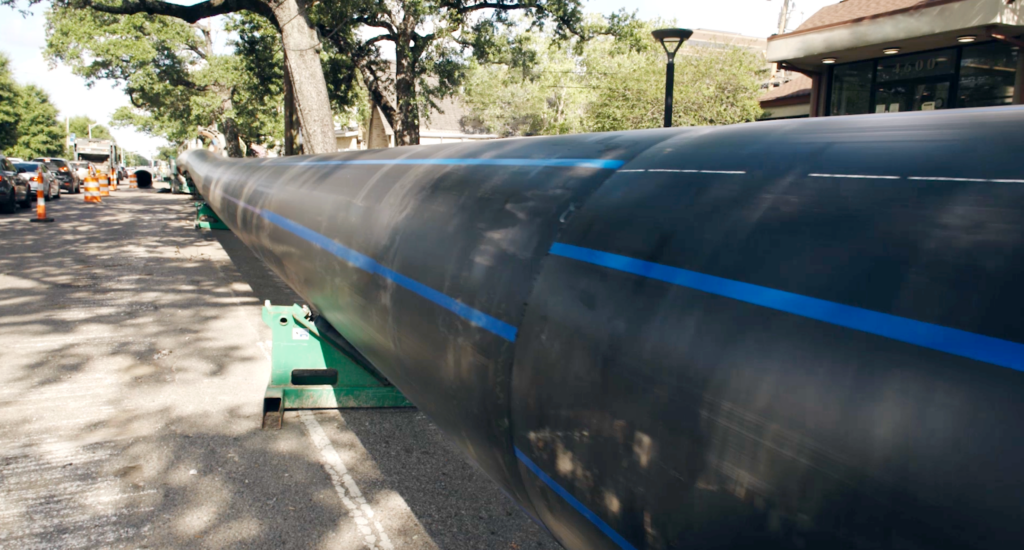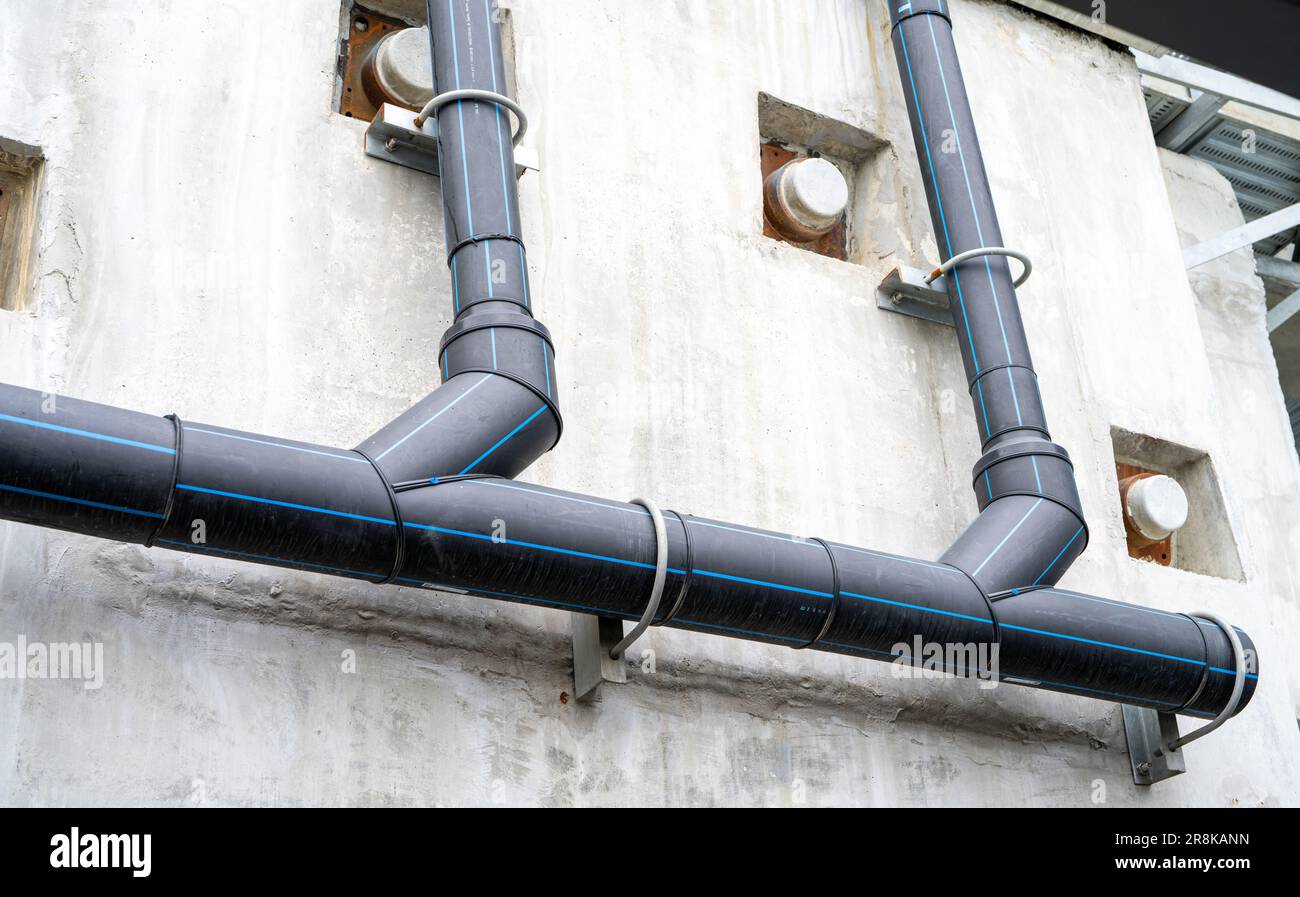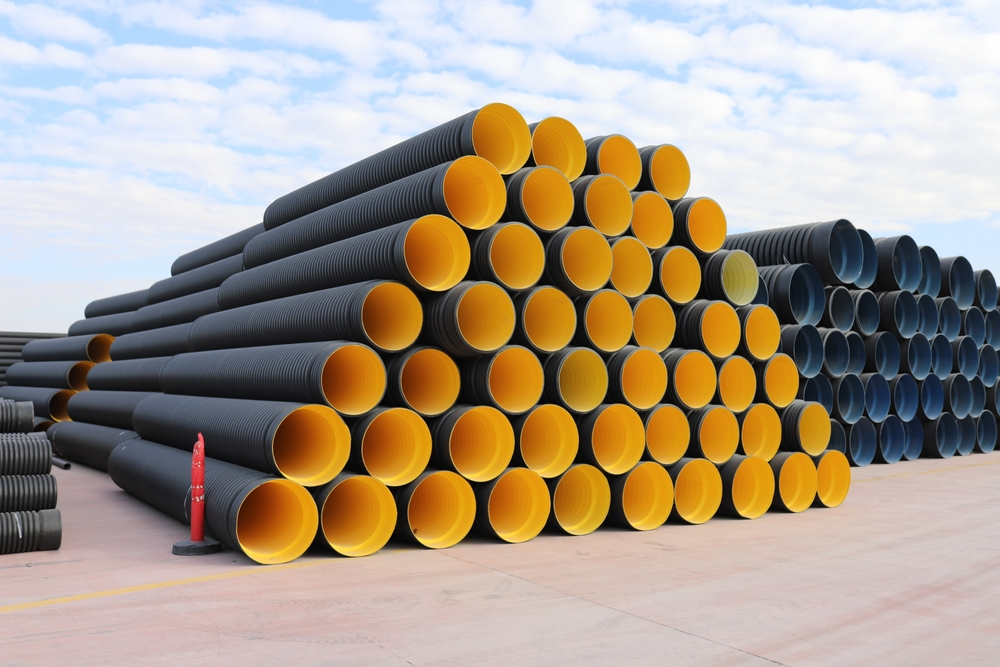Pipeline Manufacturer insights on safety
Discovering the Leading Pipeline Manufacturers: Top Quality, Integrity, and Development
The pipeline manufacturing sector stands at the intersection of advancement, dependability, and high quality, driven by leading firms such as Tenaris and Vallourec. These producers are not only dedicated to creating high-performance products yet are likewise introducing lasting techniques that address modern-day ecological concerns (Pipeline Manufacturer). As we examine the requirements that specify quality in pipeline remedies, it ends up being obvious that the landscape is rapidly advancing. What specific technologies are arising, and exactly how are these advancements forming the future of pipeline framework? The responses may redefine sector requirements in ways that are not yet totally recognized
Leading Manufacturers Introduction
In the domain of pipeline manufacturing, numerous principals emerge as leaders, each adding substantially to the industry's landscape. Business such as Tenaris, Vallourec, and JFE Steel have established themselves as frontrunners by constantly supplying premium items that meet strict industry requirements. Tenaris, renowned for its cutting-edge options, focuses on smooth and bonded pipelines, catering mostly to the oil and gas industry. Vallourec, a French multinational, focuses on the manufacturing of premium tubular remedies, highlighting sustainability and progressed innovation in its manufacturing processes.
JFE Steel, a significant Japanese manufacturer, is acknowledged for its extensive array of steel pipes, especially those made use of in power and facilities jobs. Their commitment to research study and advancement has allowed them to create high-performance materials that withstand extreme environmental conditions. Furthermore, companies like U.S. Steel and National Oilwell Varco have expanded their market presence by diversifying their item offerings and boosting functional efficiencies.
These leading manufacturers not just dominate the market however additionally drive advancement within the sector, setting standards for top quality and reliability that other players desire attain. Their contributions are vital for fulfilling the boosting need for efficient and resilient pipeline solutions worldwide.
Standards for Quality Assessment
Quality evaluation in pipeline manufacturing depends upon two crucial criteria: product resilience criteria and manufacturing procedure efficiency. Guaranteeing that materials fulfill rigorous toughness standards is necessary for the longevity and dependability of pipes. Additionally, optimizing the manufacturing procedure can improve performance while maintaining excellent quality, inevitably affecting total efficiency and safety.
Material Longevity Criteria
Ensuring the durability and reliability of pipeline materials is crucial for maintaining facilities stability and functional effectiveness. Product toughness criteria play an essential function in examining the quality of pipes, determining the performance and life expectancy of the materials utilized in building. Manufacturers should adhere to a series of strenuous standards, consisting of those set by companies such as ASTM International and the American Petroleum Institute (API)
These criteria assess various variables, consisting of deterioration resistance, tensile stamina, and tiredness efficiency. As an example, pipes used in harsh atmospheres call for products that can endure chemical destruction, while those based on high-pressure conditions have to display exceptional tensile strength.
In addition, aspects such as temperature variations and ecological problems need to be taken into consideration, as these can greatly affect material actions in time. Manufacturers usually make use of innovative testing methodologies, including increased aging examinations, to mimic long-term wear and assurance that products exceed or satisfy sector standards.
Manufacturing Process Performance
Manufacturers' capability to optimize producing procedure effectiveness is essential for producing premium pipes that meet strict sector criteria. Efficiency in manufacturing straight affects price administration, production timelines, and overall item honesty. To accomplish this, leading pipeline suppliers carry out advanced techniques such as lean manufacturing, automation, and real-time data analytics.
Lean making principles are important in lessening waste and making the most of resource utilization. By simplifying processes and eliminating redundancies, suppliers can improve productivity while making certain regular high quality. Automation technologies, consisting of robotics and computer numerical control (CNC) devices, play a critical function in enhancing precision and decreasing human error, therefore raising the reliability of the end product.
Furthermore, using real-time data analytics permits suppliers to monitor manufacturing processes constantly, allowing them to recognize bottlenecks and make prompt adjustments. This positive approach not only boosts efficiency but also sustains quality assurance methods by guaranteeing compliance with regulatory requirements.
Dependability in Pipeline Solutions
Reliability in pipeline options is extremely important, as it directly affects the security and efficiency of liquid transport systems. Secret factors include the longevity of products made use of, adherence to extensive screening and qualification criteria, and the consolidation of innovative product options that boost efficiency. Recognizing these aspects is essential for suppliers aiming to deliver reliable pipeline framework.
Relevance of Longevity
Accomplishing durability in pipeline remedies is crucial, as it directly impacts the lasting performance and safety of infrastructure. Long lasting pipelines are important for decreasing maintenance costs and decreasing the chance of catastrophic failings. This reliability is particularly important in sectors such as oil and gas, water system, and wastewater administration, where the consequences of pipeline failure can be extreme, both financially and environmentally.
The products and producing processes utilized by pipeline makers play a considerable role in determining the toughness of the end product. Utilizing high-quality basic materials, progressed modern technologies, and innovative layout concepts ensures that pipes can hold up against numerous stressors, consisting of stress fluctuations, temperature level variations, and harsh environments.
The resilience of pipelines is carefully linked to their capability to withstand external aspects such as soil motion, seismic activity, and chemical exposures. Reliable deterioration protection approaches, such as layers and cathodic security, even more boost the long life of pipes, securing them versus wear and tear over time.
Investing in resilient pipeline services ultimately converts to raised operational effectiveness, minimized downtime, and improved safety and security, attesting the crucial importance of durability in modern-day pipeline manufacturing.
Testing and Accreditation Criteria
In the domain of pipeline remedies, extensive testing and qualification requirements are crucial to guarantee the dependability and safety of infrastructure. These requirements act as criteria for assessing the efficiency and sturdiness of pipeline materials and systems, validating they meet particular governing and market requirements.
Testing procedures commonly encompass different techniques, consisting of stress testing, hydrostatic examinations, and non-destructive screening strategies. These evaluations are crucial for determining potential weaknesses or problems in the materials before they are deployed in real-world applications. Furthermore, accreditation by recognized organizations assurances that makers comply with established guidelines, which promotes depend on among stakeholders, consisting of professionals, designers, and end-users.
Many top pipeline makers involve in constant monitoring and enhancement of their testing procedures to adjust to advancing industry requirements and technical innovations. Compliance with criteria such as ASTM, ASME, and ISO not just enhances item dependability yet also minimizes the threat of environmental events related to pipeline failings.
Cutting-edge Material Solutions
The advancement of ingenious material services has actually transformed the landscape of pipeline manufacturing, enhancing both efficiency and sturdiness. Advanced products such as high-density polyethylene (HDPE), cross-linked polyethylene (PEX), and composite materials have arised as game-changers, using superior resistance to deterioration, temperature fluctuations, and pressure variants. These materials not only extend the lifespan of pipes but likewise reduce maintenance expenses, guaranteeing dependable long-lasting efficiency.
Manufacturers are significantly embracing smart products that include sensing units for real-time surveillance. This modern technology enables for aggressive upkeep, significantly enhancing dependability by finding leakages or architectural weak points before they rise right into essential failures. The assimilation of nanotechnology has actually likewise brought about the advancement of finishes that boost the toughness of pipes versus abrasion and chemical exposure.
Sustainability is an additional crucial emphasis, with makers checking out bio-based composites and recyclable products that reduce ecological impact. As regulatory requirements remain to progress, the emphasis on ingenious material solutions comes to be critical in meeting rigid security and ecological needs. Eventually, these innovations not only improve the integrity of pipeline systems yet likewise contribute to the general effectiveness and sustainability of power transport infrastructures.
Innovations in Pipeline Modern Technology
Developments in pipeline innovation are transforming the industry by improving performance, safety and security, and environmental sustainability. Recent developments focus on wise pipeline systems that use sensing units and IoT innovation to keep track of conditions in real time, making it possible for positive maintenance and reducing the risk of failings. These systems can spot leaks, stress changes, and various other anomalies, enabling quick feedback and lessening ecological effect.
Additionally, the development of sophisticated products, such as corrosion-resistant and composite alloys, considerably prolongs the life expectancy and reliability of pipelines. HDPE Pipe Supplier (HDPE Pipe Manufacturing Texas). These materials minimize upkeep costs and improve efficiency in extreme settings, making them suitable for oil, gas, and water transport
Additionally, automation and robotics are playing a vital role in pipeline building and examination. Drones and robotic gadgets assist in studies and evaluations of hard-to-reach areas, making certain comprehensive examinations without jeopardizing security.
Moreover, cutting-edge designs, such as modular pipeline systems, permit higher adaptability in setup and alteration, providing to the dynamic demands of the power industry. With each other, these technical advancements not just improve functional efficiency however likewise add to an extra sustainable and durable pipeline infrastructure, paving the means for a greener future.
Case Research Studies of Success
Across different fields, effective applications of advanced pipeline technologies demonstrate considerable improvements in functional performance and safety. One notable instance is the deployment of smart pipeline tracking systems in the oil and gas market, where real-time data analytics have actually reduced leak discovery times by over 50%. This not just decreases environmental threats however likewise improves the general honesty of pipeline infrastructure.

In addition, a significant manufacturer implemented robot examination technologies in its pipeline maintenance procedures, causing a 40% improvement in inspection effectiveness. This strategy has structured maintenance schedules and significantly minimized downtime.
These study highlight how prominent pipeline makers are leveraging advanced technologies to foster dependability and operational quality, inevitably establishing brand-new criteria for the sector. As these successes remain to unravel, they pave the means for further advancements in pipeline manufacturing and monitoring.

Environmental Sustainability Practices
Often, pipeline suppliers are focusing on environmental sustainability techniques to minimize their environmental footprint and boost the long life of their items. This commitment is reflected in different campaigns targeted at lowering waste, saving energy, and using lasting products throughout the manufacturing process.

Several producers are embracing advanced innovations that decrease exhausts and power usage. The assimilation of automated systems and energy-efficient equipment aids enhance production while lowering reliance on fossil gas. Furthermore, business are increasingly turning to environment-friendly materials, such as recycled metals and bioplastics, which not only lower the environmental influence however also advertise a circular economic situation.
Pipeline suppliers are carrying out extensive lifecycle assessments to evaluate the environmental effects of their products from creation to disposal. This strategy allows them to recognize possibilities for renovation and foster liable sourcing and waste management methods.
Collaboration with ecological organizations better boosts these efforts, as producers seek to straighten their operations with worldwide sustainability goals. Eventually, these ecological sustainability methods not just add to a healthier world however additionally setting manufacturers as responsible leaders in the industry, interesting environmentally mindful stakeholders and clients alike.
Future Trends in Pipeline Manufacturing
As the need for more sustainable and efficient framework expands, pipeline manufacturing is positioned for substantial advancements that will improve the sector. Secret patterns anticipated in the coming years consist of the assimilation of sophisticated materials, such as composite and corrosion-resistant alloys, which improve resilience while decreasing environmental influence. Manufacturers are likewise expected to adopt ingenious manufacturing strategies, like additive manufacturing and automation, to streamline procedures, minimize waste, and reduced prices.
The increase of wise pipeline technologies, integrating sensing units and IoT devices, will enable real-time surveillance and anticipating upkeep, therefore improving safety and security and operational effectiveness. This digital transformation will certainly not only optimize resource management but also assist in conformity with rigorous ecological guidelines.
Sustainability will stay a main emphasis, driving manufacturers to purchase environment-friendly techniques, consisting of energy-efficient manufacturing approaches and recycling initiatives. As the global emphasis on climate adjustment heightens, pipeline producers will require to adjust by creating services that meet both financial and environmental demands.
Frequently Asked Inquiries

What Industries Mainly Make Use Of Pipeline Products From These Manufacturers?
Pipeline items are mostly made use of in markets such as oil and wastewater, gas and water management, chemical building, handling, and mining. These sectors depend on efficient, resilient, and risk-free transportation of materials and fluids.
Exactly How Do Manufacturers Guarantee Compliance With International Pipeline Specifications?
Manufacturers ensure conformity with international pipeline standards by applying rigorous high quality control processes, carrying out normal examinations, sticking to well established regulative frameworks, and purchasing employee training to promote understanding and understanding of safety and high quality demands.
What Is the Average Lifespan of Pipelines From Leading Manufacturers?
The ordinary lifespan of pipes from leading manufacturers typically varies from 30 to 100 years, relying on material, environmental problems, and upkeep methods. HDPE Pipe Supplies Midland TX. Normal inspections and adherence to industry requirements markedly affect longevity and performance
Are There Certifications Details to Pipeline Manufacturing High Quality?
Yes, various qualifications exist for pipeline producing high quality, including ISO 9001 for high quality monitoring systems and API requirements certain to pipes. These accreditations guarantee adherence to rigorous safety and security, performance, and environmental criteria within the sector.
Just How Do Manufacturers Deal With Pipeline Maintenance and Services?
Manufacturers commonly execute an aggressive upkeep technique that consists of regular evaluations, keeping an eye on systems for early discovery of problems, and an organized repair procedure. This method assurances pipeline honesty, decreases downtime, and boosts overall operational performance.
Quality analysis in pipeline manufacturing hinges on 2 important standards: material toughness criteria and making procedure effectiveness - HDPE Pipe Supplier. Product resilience criteria play an important role in evaluating the high quality of pipes, dictating the efficiency and life expectancy of the products utilized in building and construction. The products and manufacturing procedures employed by pipeline manufacturers play a substantial role in determining the sturdiness of the last product. The typical lifespan of pipes from leading manufacturers generally ranges from 30 to 100 years, depending on product, environmental problems, and upkeep methods. Yes, numerous accreditations exist for pipeline making top quality, consisting of ISO 9001 for high quality administration systems and API requirements details to pipelines